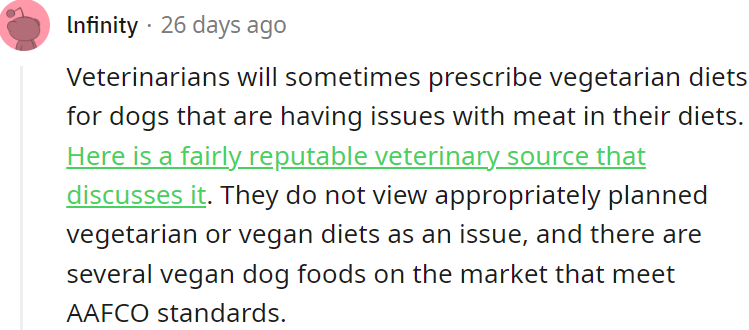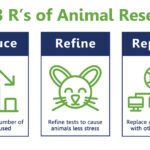As the world becomes increasingly aware of the environmental and ethical implications of our dietary choices, more pet owners are contemplating the adoption of vegan diets for their cats and dogs. However, this trend raises a critical question: is forcing your dog or cat on a vegan diet ethical—or dangerous?
At first glance, the decision to adopt a plant-based diet for pets may seem aligned with a compassionate and eco-conscious lifestyle. Yet, we must delve deeper into the individual nutritional needs of our canine and feline companions. Unlike humans, dogs and cats have evolved with distinct dietary requirements shaped by their biological makeup. Dogs are omnivores and can thrive on a balanced diet that includes plant-based foods, but practical implications often complicate the issue. On the other hand, cats are obligate carnivores, meaning their bodies rely on nutrients found exclusively in animal products.
The ethical justification for feeding a vegan diet to pets originates from a desire to reduce animal suffering and promote cruelty-free living. Proponents argue that by eliminating meat consumption, pet owners can contribute to a decrease in the demand for industrialized animal farming practices, which are notoriously linked to various forms of cruelty and environmental degradation. They posit that educating oneself and making informed dietary choices for pets reflects a commitment to animal welfare.
However, it is also essential to consider the physiological realities of domesticated animals. Cats, primarily, require specific nutrients such as taurine, arachidonic acid, and vitamin A, which are predominantly found in animal tissues. A vegan diet devoid of these essential components risks leading to severe health issues, including heart problems, vision impairment, and reproductive challenges. Numerous studies indicate that adult cats deprived of these nutrients exhibit significant health deterioration, underscoring the importance of adhering to species-specific dietary needs.
That’s not to say owners can’t manage a vegan diet for dogs—yet, it comes with its own set of challenges. Dogs may adapt quite well to vegetarian options when nutritionally balanced; however, several vegan pet food brands may not offer adequately nutritious options. Misguided beliefs about a dog’s ability to live healthily on a solely plant-based diet can lead to unethical consequences if nutritional deficiencies occur. This creates a dilemma: how can a pet owner remain ethical, while ensuring their furry friend thrives?
One of the critical aspects of addressing this dilemma is recognizing the role of professional guidance. Veterinarians play an indispensable role in designing an optimal feeding plan. Moreover, pet owners should conduct thorough research and stay informed about the latest findings in veterinary nutrition. This can involve scrutinizing commercial vegan pet foods’ ingredient lists and considering supplementation to address nutritional deficiencies that may arise from a plant-based diet.
Furthermore, the ethics of forcing an animal into a vegan diet also connect to the broader conversation about personal autonomy. While advocating for plant-based living is commendable, it raises questions regarding the autonomy of animals. Can pet owners truly prioritize the welfare of their companions if they impose human ideologies and preferences onto them? The challenge remains: how can we claim to be stewards of animal welfare while potentially neglecting the unique needs of different species?
Pet parents also need to be cognizant of the behavioral aspects associated with dietary changes. Animals often display a strong preference for certain food types based on their evolutionary history and instinctual behaviors. Transitioning a pet too abruptly to a plant-based diet can manifest in behavioral issues ranging from food refusal to digestive complications. These potential adverse effects highlight another layer of ethical concern—where does one draw the line between personal convictions and the animal’s quality of life?
Moreover, it is imperative to underscore that not all plant-based foods are created equal. Many commercially available vegan pet foods are formulated with a variety of ingredients, yet they may often lack critical nutrients or contain allergens that can adversely affect certain dogs and cats. Understanding the risks associated with transitioning a pet to a vegan or vegetarian diet requires careful planning and thorough consideration of individual animals’ health requirements and preferences.
As the debate surrounding veganism in pets continues to evolve, the conversation must remain rooted in compassion and informed decision-making. Ethical living should encompass all aspects of animal welfare and necessity, demanding a balanced perspective that recognizes the complexity of nutritional science and the individual needs of different species.
In conclusion, the challenge of whether to adopt a vegan diet for dogs and cats centers on the nuanced intersection of ethical considerations and biological requirements. While personal beliefs about animal welfare are valid and can drive positive social change, they should not overshadow the essential responsibility owners have to ensure the health and happiness of their pets. After all, the ultimate goal should be to promote a holistic approach to animal welfare—one that respects the nutritional needs and individual circumstances of every furry companion.






